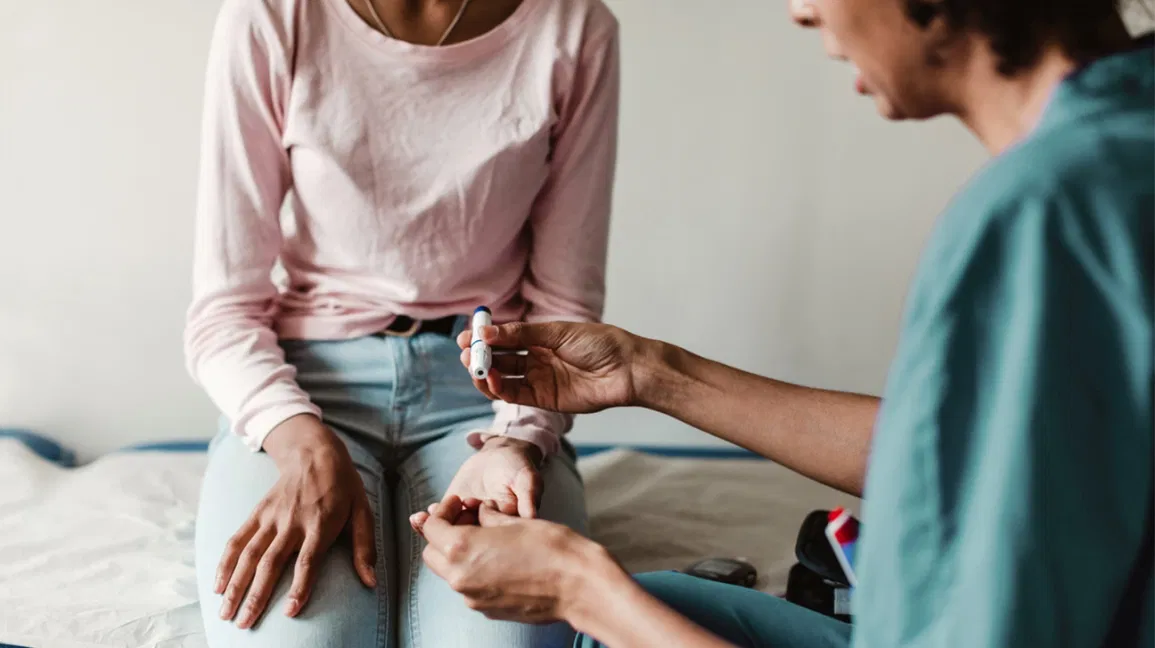Symptoms and Treatment of Diabetes in Women
Introduction
Due to changing lifestyles, diabetes has become a common disease among all age groups. Diabetes is a metabolic disease in which the patient has high blood sugar levels. A person of any age or gender can get affected by this disease.
Nowadays, diabetes symptoms in women have become very common, and it has affected their lifestyles drastically. Diabetes can be controlled with a balanced diet, regular exercise, and medicine prescribed by doctors.
Early Symptoms of diabetes
Some of the early symptoms or early effects of diabetes among women include the following:
- Extreme hunger
- Increased thirst
- Frequent urination
- Sudden weight loss
- Blurred vision
- Slow-healing of sores
- Fatigue
- Irritability
Diabetes Symptoms in Women
Most of the symptoms of diabetes among men and women are the same, but still, there are some different diabetes symptoms in women. Some of these symptoms are described below.
- Urinary infections: Women with diabetes are at higher risk of developing a urinary tract infection caused by the invasion of germs into the urinary tract. These infections result in causing a burning sensation, bloody or cloudy urine, vaginal discharge, etc. Since the immune system among women is mainly compromised by hyperglycemia, UTIs are common in women with diabetes.
- Polycystic ovary syndrome (PCOS): It is quite a common cause of infertility and insulin resistance among women. It results in symptoms such as delayed periods, acne, thin scalp hair, and more hair growth on the face and other body parts. The high level of insulin further increases the risk of diabetes. Today, almost 50% of women in the world suffer from PCOS.
- Sexual dysfunction among women: Diabetic neuropathy mainly occurs when the nerve fibres get damaged by excessive blood glucose. It eventually results in nerve damage and a lack of feeling in several areas. Also, due to this condition, a woman’s sex drive is highly reduced and difficult to enjoyed life.
Diabetes and Pregnancy in Women
Type 1 diabetes is a condition in which the immune system damages the insulin-making cells in the pancreas, called beta cells. It is majorly diagnosed in children, so it is also called juvenile diabetes. Type 2 diabetes is an impairment in the way the body regulates and starts using sugar (glucose) as fuel. This long-term condition results in more circulation of sugar in the blood. Eventually, high blood sugar levels result in disorders of the circulation, nervous, and immune systems.
Many women with diabetes worry about their condition and whether it affects their children. The good news is that women can have healthy pregnancies after being diagnosed with type 1 or type 2 diabetes. No matter what kind of diabetes you have, it is crucial to take special care to avoid complications. If you are diabetic and planning a pregnancy, it is best to check your blood glucose levels at regular intervals. Pregnant women must get their blood glucose levels and general health tracked before and during their pregnancy.
Babies can have birth defects in case their glucose level is high. Passing of the disease to unborn babies makes the situation more stressful and puts them at risk for conditions including cognitive impairments, developmental delays, and high blood pressure
Treatment
Diabetes cannot be cured completely once it has been diagnosed. But surely medications, dietary modifications and a healthy lifestyle can help women to keep control of their symptoms.
Women with diabetes can take medications to effectively manage the symptoms and complications of diabetes. Today several new classes of medications for diabetes are available on the market like insulin, metformin (Glucophage), etc., that help reduce blood sugar. Women can manage diabetes with some lifestyle changes. These changes include the following:
- Exercise and maintaining a healthy weight
- Avoid smoking cigarettes and alcohol
- A diet enriched with fruits, vegetables, grains, etc.
- Regular monitoring of blood sugar levels
Remember to consult the doctor before the symptoms get worse. Also, consult the doctor before starting any new treatments. The patients must check their blood sugar at regular intervals so that symptoms don’t get worse.
Conclusion
In a nutshell, along with some common diabetes symptoms between men and women, there are different diabetes symptoms in women, like urinary tract infections and PCOS. It would not be wrong to say that up to a great extent, medication, exercise, and a healthy diet help control diabetes levels and remain essential. So, women should motivate themselves to eat a healthy diet and exercise regularly to lower diabetes symptoms.
Hope this informative blog helps lower the impact of diabetes symptoms on women and helps them lead healthy lives.






